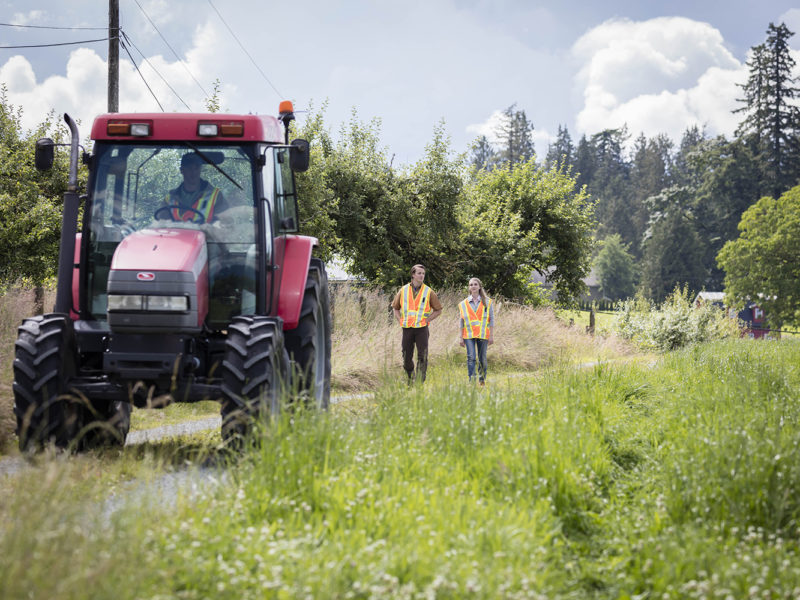Two years of public health protocols have emphasized our obligations not only to ourselves but to our communities.
This year’s promotion of farm safety during Canadian Agricultural Safety Week (March 13-19) has a similar emphasis.
Spearheaded by the Canadian Agricultural Safety Association, the 2022 campaign focuses not just on practical safety advice and awareness, but the reasons why safety is essential for all farming operations with the theme “Your Farm, Your Family, Your Success.”
One of the newest initiatives in BC designed to promote and protect the safety of farm workers is a mandatory entry-level training program for Class 1 commercial driver’s licence applicants. The program launched this past October and requires farmers and ranchers who drive trucks and heavy equipment, including tractors, off their properties to upgrade to a Class 1 licence and complete the mandatory training program.
The program includes a minimum required number of practical behind-the-wheel driving hours, in-yard hours and theoretical instruction hours. ICBC oversees training schools and instructors in the province and collaborated with the commercial driving industry and government to develop a curriculum. A public consultation was held in 2019.
While training is important, some farmers find the 140-hour course difficult to complete alongside daily farm operations.
A lack of nearby testing facilities in some parts of the province is another obstacle. In addition, ICBC is dealing with road test backlogs due to COVID-19, posing delays for applicants.
Cost is another issue. Training can be in the thousands of dollars, adding to the expenses farmers face amid other rising costs.
The new licensing requirement aligns BC with national standards introduced in response to the tragic 2018 bus crash in Saskatchewan involving the Humboldt Broncos hockey team.
The move to protect worker and public safety also aligns with the aims of AgSafeBC, which holds its annual general meeting later this month.
“Our mission is to create a safe and healthy work environment throughout the province,” says AgSafe BC executive director Wendy Bennett. “Our team of safety professionals and board members is involved in a variety of activities that help create robust safety resources, information, programs and partnerships so that producers, workers and families can return home healthy at the end of each day.”


 Wage rates increase
Wage rates increase